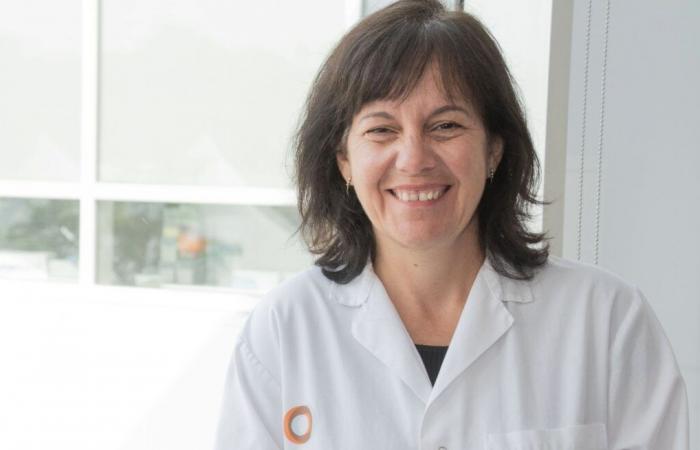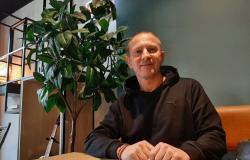This text is part of the special Acfas Prize booklet
She became interested in the effects of bioaerosols on our health long before the COVID-19 pandemic. Caroline Duchaine, full professor in the Department of Biochemistry, Microbiology and Bioinformatics at Laval University, received the 2024 Acfas Jacques-Rousseau Prize. Its multidisciplinary approach has notably made it possible to better protect hospital patients against gastroenteritis.
From her master’s degree in physiology-endocrinology, obtained at Laval University in 1993, the researcher understood that she did not want to specialize in a single field. “I told myself that I might not become an expert at anything, but I would have fun at a lot of things!” » says the one who collaborates with experts from disciplines as diverse as microbiology, physics, medicine, agricultural engineering, meteorology and even artificial intelligence… To name just a few, because the list is long !
Her thesis on the microflora of the air of dairy farms in Quebec led her to take an early interest in bioaerosols — biological particles suspended in the air which include, for example, viruses, bacteria, fungi, pollens, allergens or toxins — and their effects on human health. To understand them, it is necessary to explore their biological and chemical properties, but also their trajectory, which is a matter of physics. “At the start of my career, this complex science was still in its infancy,” she says. This really stimulated me, because as soon as I had an idea, I was almost certain that no one was interested in it yet! »
Better protection against gastroenteritis
In 2015, his study on the role of air in the transmission of gastroenteritis shook up preconceived ideas about this highly contagious disease. “The scientific community usually associated bioaerosols with respiratory diseases. However, some of the particles we breathe enter the lungs, but the vast majority of them are swallowed,” explains the researcher. By looking into an outbreak of gastroenteritis at the hospital, Caroline Duchaine and her team noted that most cases had not been in contact with affected patients. Stretcher bearers or cleaning staff had been contaminated by inhaling (and ingesting) virus particles carried in the air.
“In hospitals, we recommend isolating the rooms of patients with gastroenteritis so that the virus does not escape from the rooms,” says the researcher. In 2016, his discovery was presented by the president of the European Congress on Clinical Microbiology and Infectious Diseases in front of more than 15,000 hospital stakeholders and ventilation engineers.
A researcher without borders
Currently, Caroline Duchaine is leading a project on the role of bioaerosols in the dispersion of antibiotic resistance genes, which will end in 2025. Her ecosystem brings together experts from nearly fifteen specialties ranging from bioinformatics to animal physiology. “We took tens of thousands of samples in the air near agricultural land, a pigsty, a wastewater treatment plant, but also in the clouds, in the Far North and during of a transatlantic crossing by boat,” she describes. One goal is to find out whether we might be exposed to resistant bacteria carried from other countries by clouds or winds. “And if we swallow these resistance genes, can they change our gut microbiota? » asks the researcher, who is already observing good results.
Drummer in a band, mother of three children and breeder of three cats, Mme Duchaine has a sense of the collective. “In the world of research, there are many Tournesol professors, very invested in their own mission. There is pride, the need to possess one’s knowledge, to exploit it and to retain the merit of it,” observes the woman who modestly explains that her first quality was knowing how to surround herself. “Around 160 students have passed through my laboratory since the start of my career, and I have research professionals who have been there since the early 2000s. All of them are wonderful people with different profiles,” underlines the researcher.
When she wears her teaching hat, Caroline Duchaine also trains the next generation with the undergraduate course “Bioaerosols and aerobiology”, which she co-created in 2010 at Laval University. “We were the first in Quebec to teach the science of bioaerosols,” she emphasizes. A program open to students from varied backgrounds, for a better understanding of the air we breathe.
This content was produced by the Special Publications team at Dutyrelating to marketing. The writing of the Duty did not take part.






